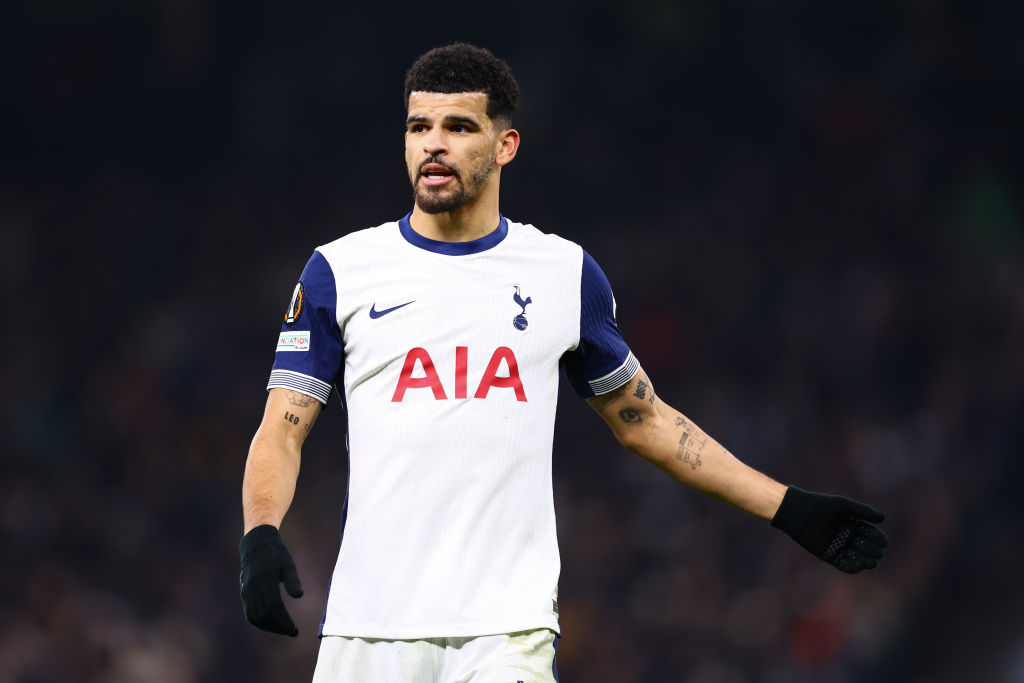"We had a picture of Arsenal players celebrating in the dressing room as a nice reminder" – Leicester's title triumph, retold by the men who were there
The Foxes' unfathomable Premier League title win might just be the greatest in English football history. Players, staff members, broadcasters and fans give us their own tales behind the triumph
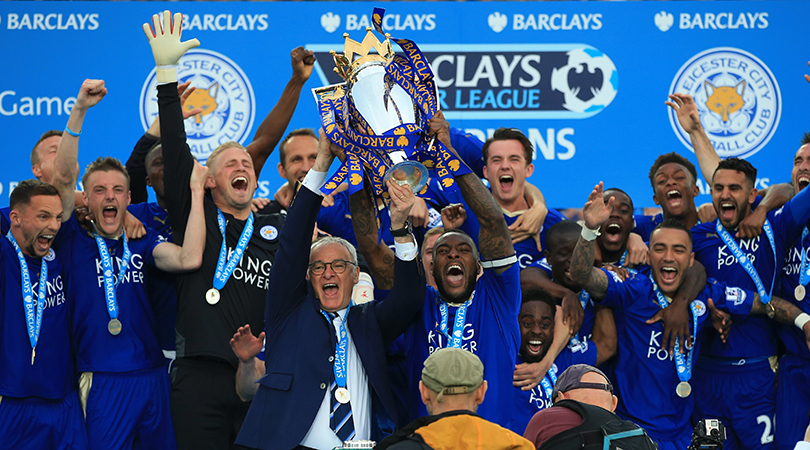
Interviews: James Maw, Andrew Murray, Martin Mazur, Joe Brewin
Featuring...
- Mark Albrighton (winger)
- Christian Fuchs (defender)
- Andy King (midfielder)
- Leonardo Ulloa (striker)
- Jason Bourne (BBC Radio Leicester)
- Dave Bevan (fan and author of The Unbelievables)
- John Ledwidge (groundsman, King Power Stadium)
- Brad Varnham (PA announcer, King Power Stadium)
Mark Albrighton: Our only aim for the season was to stay up – that, and to finish higher than we had the year before. The way we had ended the previous season meant that we finished 14th, and it almost looked like we hadn’t even been in a relegation scrap at all. That gave us real confidence going into the 2015/16 campaign.
Christian Fuchs: I joined the club [on June 3, 2015] when Nigel Pearson was still manager. He sold it to me on the way that he wanted the team to play. He told me about ‘the great escape’ the year before, and the plans for the new season. So, of course, it was a bit of a strange start for me. I had signed to play under another manager, and in that situation you never know if you’re going to be in the new guy’s plans.
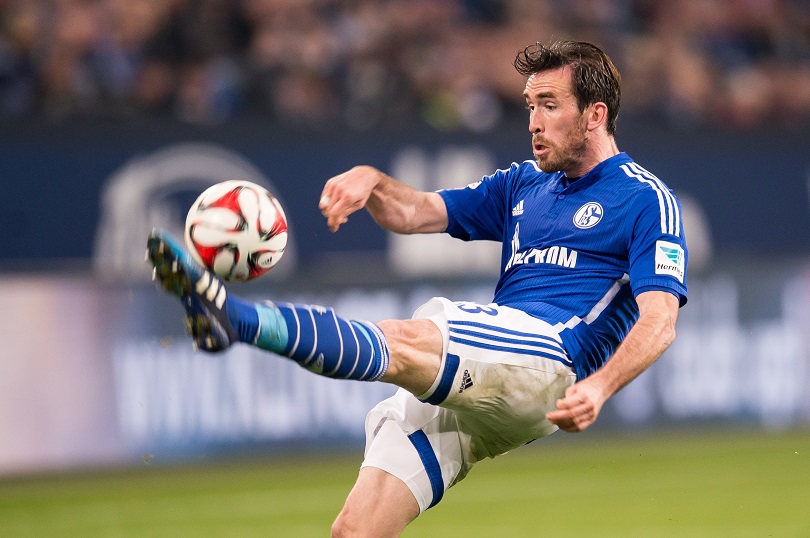
Andy King: We didn’t get told until maybe five minutes before Claudio Ranieri came into the room that he would be our new manager. Then we were working with him straightaway – it wasn’t just a case of him coming in a week’s time or something. I was actually a ball boy at Chelsea when he was the manager there [from 2000-04] – he wouldn't never remember me as I was just one of many academy players there at that time – but it’s weird how things came full circle.
MA: Our first game was at home to Sunderland. The first game of the season is always hard, as you can’t compare yourself against the other side because it’s hard to work out who has had the better pre-season. We ended up winning 4-2. I got a couple of assists and even managed to get forward myself and grab a goal, which was the perfect start to the new season for me.
Leonardo Ulloa: It was a very clear victory, not only in terms of the goals scored but also in terms of the difference shown on the pitch: we could see in every action that we were superior. We were more intense – something we’d see in most of the games over the course of the season.
Get FourFourTwo Newsletter
The best features, fun and footballing quizzes, straight to your inbox every week.
AK: The first game was brilliant – it was important that we got off to a good start in the league. I don’t think anyone expected us to be 3-0 up at half-time and cruising, but we were. We came out of the blocks brilliantly. So there were three points on the board straightaway. We managed to carry that on: we beat West Ham away in the next game, and we were up and running. The momentum just built from there.
Jason Bourne (BBC Radio Leicester): In September there were a couple of games in quick succession where the team came back from 2-0 down: they won the first 3-2 against Aston Villa live on the telly, and drew the second 2-2 at Stoke. Those results showed the real fighting spirit, and momentum continued to build. Suddenly we were having thoughts of Leicester finishing in the top six and getting into Europe. You could already see they had that consistency in performance.
Dave Bevan (fan and author of The Unbelievables): At that early stage I still don’t think that any fan thought we would lose only three games all season! When you look back now, those were probably the games we didn’t lose that we looked most likely to.
John Ledwidge (groundsman, King Power Stadium): There was always the belief that the ability was in the squad – and that’s the whole club, from the players down to us on the staff. The lads play on our pitches every day of the week so you really feel like you’re doing your bit, not just with the stadium but the eight-and-a-half pitches at the training ground as well. If we contribute even one per cent to their success, then that’s a great achievement in itself.
Brad Varnham (PA announcer, King Power Stadium): I first thought that something special was starting to happen during the build-up to the Chelsea game in December. They were on the rocks and Jose Mourinho was really struggling. I bumped into the club secretary before the game and he said he’d take a draw. I said, “Chelsea are there for the taking.” We won the game 2-1 with Riyad Mahrez scoring an absolute belter, and suddenly I was thinking about the Europa League.
AK: Throughout the year we went through different stages. After 10 games we thought, ‘Right, we have had a really good start.’ Then we beat Chelsea and Everton in December, which put us top at Christmas [with 38 points]. Then we were thinking, ‘We really shouldn’t get relegated now, and we will get to 40 points’, which was still the main target at that stage despite being top – it was only our second season back in the Premier League, don’t forget. We were looking at teams like Stoke and Southampton, who had come up through the leagues and gradually got better and established themselves in the top flight.
LU: As the matches went on, it became strange, because the comments were still that we would eventually fall away, and yet we were doing it on merit: playing very well, winning at home, winning away. It wasn’t a matter of luck; we were marching on confidently, while all of the big clubs couldn’t take off, and yet the media focus was still on how long we would be able to hang on before we finally collapsed.
MA: Winning 1-0 away at Tottenham in January gave us a really good feeling, because we had done it by defending for our lives and then nicking a goal through Robert Huth’s header late on. Winning a game like that is sometimes the best way to do it. You feel amazing.
AK: People definitely underestimated us at the start of the season, and then as it went on, it was almost too late to stop us. Our momentum had built up. We grew in confidence and believed towards the end of the season that we could beat the top teams. We weren’t annoyed that people were underestimating us or not giving us enough credit – if anything, it played into our hands. The way people slacked off a little bit helped us.
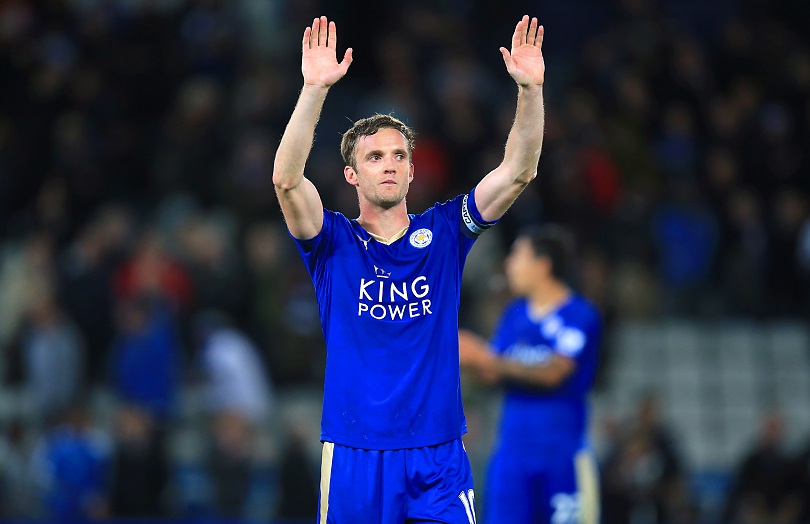
MA: After we beat Liverpool [in February], I spoke to James Milner and he said, “Brilliant – go and win it now.” For someone who has won it before to say that meant a lot. It started to put the ideas in your head that it would be absolutely massive if we could win it.
BV: I’ve been a Leicester fan since I was eight and I have been working as DJ and stadium announcer for 20 years, including every year at the King Power since it opened in 2002, so from the relegation to League One, I’ve seen it all. After ‘the great escape’ we just wanted to avoid relegation – and here we were, right at the top. I don’t think a home game went by without fans singing, “We are staying up.” For the first time in my life, it was said with irony.
JB: A lot of people were complimentary about the team – I’d go into different press conferences and press rooms and speak to journalists covering the different clubs and they’d all say nice things – but I still don’t think many people were taking Leicester too seriously. I remember hearing on TV and radio that they would fall away at some point. Everybody was talking about the Manchester City and Arsenal games and how they would be the turning point.
CF: The game away at Man City was one of our best performances. It just showed the strength we were capable of. We had plenty of confidence before that game, but even after, I never thought that we would definitely win the title. We just focused on how we were going to play in the next game, and watching the opposition to see how we could overcome them.
MA: We played City off the park. It was a comfortable win in the end. I’d been there a few times with Villa and been on the wrong end of some big scorelines. I remember once being 5-0 down and the crowd were olé-ing – we couldn’t get anywhere near the ball that day. So to go there, be 3-0 up within an hour and then go off to a standing ovation from the whole stadium at full-time is something that’ll stick with me forever.
DB: At Arsenal, we were drawing 1-1 deep in injury time. They won a free-kick, and it kind of felt as soon as that happened, knowing it would be the last kick of the game, that it was inevitable it was all going to go wrong. Danny Welbeck scored and they went crazy. It’s hard to describe the feeling; in that moment it was utterly deflating because we were not used to losing, but we were so proud of how far we’d come that day.
CF: After the game [Ranieri] gave us a few days off to get our heads straight, and then we just went again. We knew we had to just keep doing what we had been doing, even though it was a particularly cruel way to lose, in the last minute. We were never going to win every game.
There was some talk in the media about how that would be the start of the collapse, but I chose not to focus on the media. The only thing that matters to me is how we focus and how we perform. Obviously you can’t always avoid knowing what people think of you, but I never give these things too much attention.
JB: We couldn’t believe the way that Arsenal were behaving after that game. We were still on air at the Emirates, and they were celebrating it like they’d won the Premier League already. They weren’t even top of the league yet – they hadn’t even overtaken Leicester!
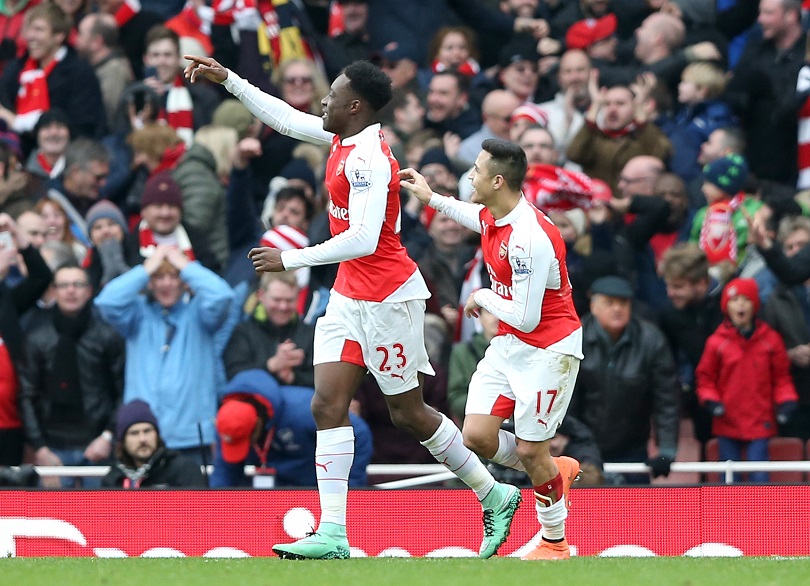
LU: After the match, there was this photograph on Instagram of the Arsenal players celebrating in the dressing room and holding up two fingers. It made us all laugh. They were two points below us, and in the end... well, I think they ended up a little further behind than that in the table. We had this picture stuck up in the dressing room as a nice reminder of what they were all thinking about us. We would also share these pictures through Whatsapp. I can say they helped us keep focused and concentrated.
DB: As a fan, you are always looking for those little signs that something may be about to go wrong, and when we played Newcastle we could see one. Rafa Benitez had just become their manager and we all feared the infamous ‘new-manager bounce’. But Shinji Okazaki scored the winner with an overhead kick. It was a great goal, but it’s also funny because up until that point, quite a lot of Leicester fans didn’t really rate him particularly highly. Towards the end, though, the feeling that he was really important grew and grew.
MA: I’d say Okazaki was a key player who probably didn’t get enough credit. In some of the games, especially the bigger games, we had three in the middle and Shinji would drop back to make it four, which would help us outnumber the opposition. He did all the running and all the grunt work in the middle of the park to help create space for Jamie Vardy to score his goals, so he was massive for us.
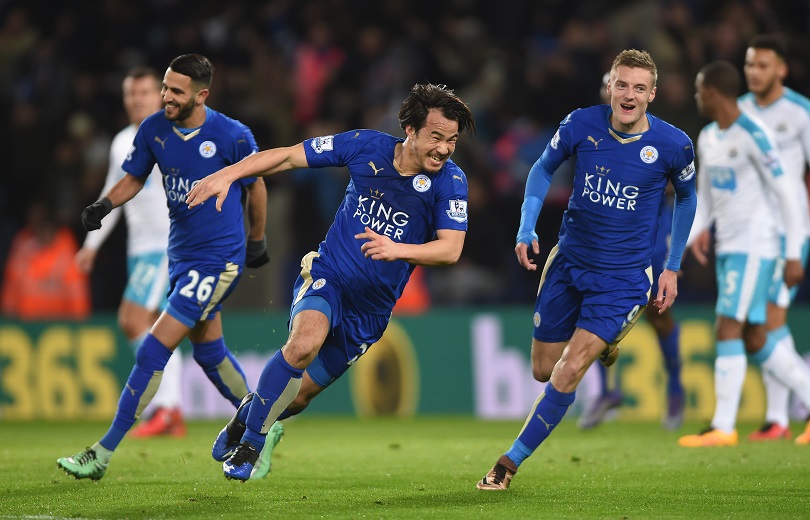
CF: There were a couple of games like that, where we had to hold on and win 1-0. Keeping clean sheets was massive. We played every match as if it were our last. We had a very solid defence, so we knew that as long as we kept a clean sheet, it didn’t matter how many goals we scored – we’d end up winning the game.
DB: We won 1-0 away at Crystal Palace in March. It was a really tight one – I think Damien Delaney hit the crossbar in injury time. At full-time we all sang, “We’re gonna win the league” for the first time. We stayed in the ground for 15 or 20 minutes, singing it over and over. Palace put an announcement over the PA system in the end, telling us all to go home!
JB: We had pitch access at Selhurst Park that day, so after the full-time whistle we went across to all of the Leicester fans and just held the microphones up to them. We didn’t talk; we just let everyone back home listen to what the supporters were singing.
CF: Teams who weren’t competing with us were very supportive. We could see we were giving them hope by proving that it was possible to compete for the title. After games, players would say ‘Well done’ and ‘Keep going’ and things like that, which was good. It shows they were happy with us; there was no real jealousy.
AK: All of the pundits were saying, “Leicester are going to blow up”, all the way down to the last whistle. We ground out a 2-0 win at Sunderland and some people were still saying that we didn’t play like champions. They thought Tottenham were eventually going to catch us, as at that point they were blowing teams away; they beat Manchester United 3-0 on the same day we beat Sunderland.
We needed great character in the squad to hold it together. Our next game, against West Ham, was massive. Things weren’t going well: we were 2-1 down and Vardy had been sent off. But we got a penalty – a lifeline. Leo stepped up to take it.
LU: Pressure? To be honest, I didn’t feel a thing. I just felt that I had to take it; I didn’t analyse the scenario. After the match ended, I listened to the comments and started to understand the magnitude of that penalty – the importance of that point. It was good that I didn’t really think too much before taking it!
AK: I’m not sure what to say about the refereeing decisions that day, which could’ve had such a bearing on not only our footballing careers but our lives, when you look back at it. But thankfully that wasn’t the case in the end. Fair play to Leo for scoring in the last minute.
DB: When Vardy got sent off, I thought that was it, and it was all going to come crashing down. I’d never been to a game that was more difficult emotionally. At this stage, as a supporter you are living this whole thing 24/7. It’s all you think about all week. Once one game is done, then you’re quickly obsessing over the next.
MA: Spurs played at Stoke the next day, on the Monday night, and they absolutely annihilated them 4-0. I had a few mates come over to watch the game and they had to leave because I ended up getting so moody and wound up about it all.
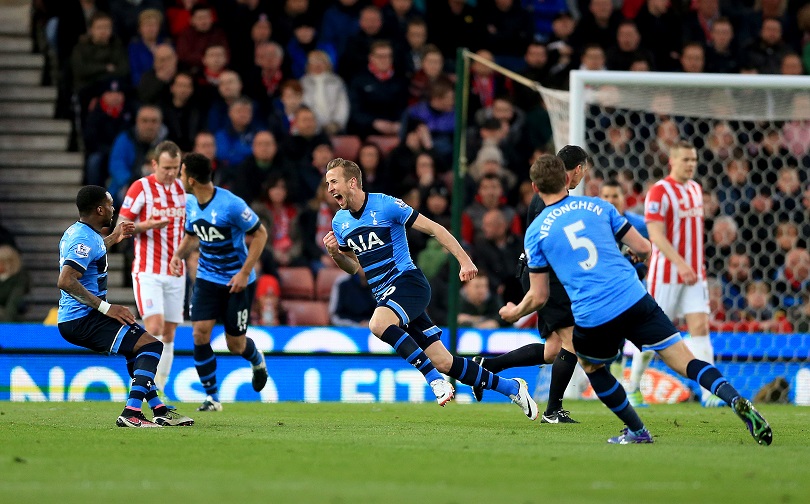
I thought, ‘Wow, they’re unbelievable – they’re going to take some stopping’. We had some tough fixtures left: we had to go to [Manchester] United and we also had to finish the season away at Chelsea. I thought that maybe we had messed it up against West Ham. I ended up feeling sorry for myself. It was a tough weekend.
DB: The Swansea home game, coming off the back of the draw against West Ham, was one of the best moments of the season. Obviously we didn’t have Vardy available for that game, and there were a lot of people questioning how we were going to react without him, asking: was it going to fall apart now?
LU: Vardy was suspended and so all responsibilities were on me as I had to replace him. I prepared all week, knowing that it had to be my game. I was telling myself, ‘You’ve been doing this since you’re six; it’s just another game’, even though I knew it wasn’t. I was so focused. We won 4-0 and I scored twice. I’d pick that game as my favourite, because it involved a whole week of thoughts, visualisation and preparation.
MA: I chose to not watch Spurs vs West Brom on the Monday night. I went out instead and left my phone in the car, and I didn’t check it until the last five minutes of the game. I saw it was 1-1, so I was pacing up and down the kitchen with my phone in my hand. When the result came in, I saw all the Spurs players looking utterly dejected, like they had blown it. That gave us – certainly me – a lot of confidence. They looked beaten.
JB: When Craig Dawson got the West Brom equaliser, I burst into tears. We knew that if Spurs drew or lost, then Leicester could win the title at Manchester United in their next game. It just hit me like a sledgehammer.
BV: I was on a flight back from Ireland and got talking to a family who had taken their eight-year-old son to Manchester United vs Leicester last season. As a treat, the grandad said he would buy his grandson a shirt.
“I want Vardy on the back,” he replied. The grandad explained that he couldn’t because he didn’t play for Manchester United. “I know, but I’m a Leicester fan,” said the boy. Who’d have thought that could happen?!
DB: Personally I didn’t feel any pressure about the United game. I felt, at that stage, that Chelsea would get something out of their game against Tottenham. I thought it was getting to the stage where it was now fairly inevitable. We drew 1-1 at Old Trafford, so we had to wait another day. Was it an anticlimax? Not really.
AK: Tottenham were still hot on our heels, so we refused to believe that it was done and dusted. Our last two games were against Everton and Chelsea, and anything could have happened, really – they are both good sides. But Spurs had to play Chelsea, too.
LU: Tottenham hadn’t won at Stamford Bridge for 18 years; now they were leading 2-0 at half-time. We were all asking, “Why today?!” But then Chelsea fought back.
JB: I was on air live from a pub in Leicester. We had a commentator at Stamford Bridge, and fortunately we cut to him just before Eden Hazard’s goal [to make the score 2-2]. Because our feed was a few seconds before the Sky broadcast in the pub, I was celebrating wildly before the rest of the room. Then they realised what they were about to see. It was complete bedlam.
LU: We ended up saying prayers for the final whistle. After celebrating, and getting a million messages and phone calls, we still couldn’t leave the house because there was a multitude outside – someone had leaked that we were there [at Jamie Vardy’s home] and it was impossible to leave. I managed to leave after 3am, to go right the way downtown where my brothers and my friends had been waiting for me in a pub. The streets were full of people, and when they identified a player they’d all try to hug him. It was like being in Naples.
JL: What I remember most were the tears: grown men and women crying because they couldn’t believe what they’d seen. It was so special to share that with a lot of good people I’ve got to know over the years. I could barely get home afterwards! The streets were full of people dressed up in hats and scarves, and children who almost didn’t know what to do with themselves.
MA: Training the next day was more of a celebration than anything. Even the kitchen and laundry staff came out and saw it as their chance to join the fun. That was a really great moment – it was for everyone at the club. We didn’t train particularly hard that day!
JL: We wanted to do something different to the pitch for the Everton game – something people would never forget. The ground staff talked it through, everyone had their say, and we decided on stars to mark the incredible achievement. It took about a week of solid work. Even though it hooved it down in the second half, you could still see the stars when the trophy was presented, so we were really proud of what we’d done.
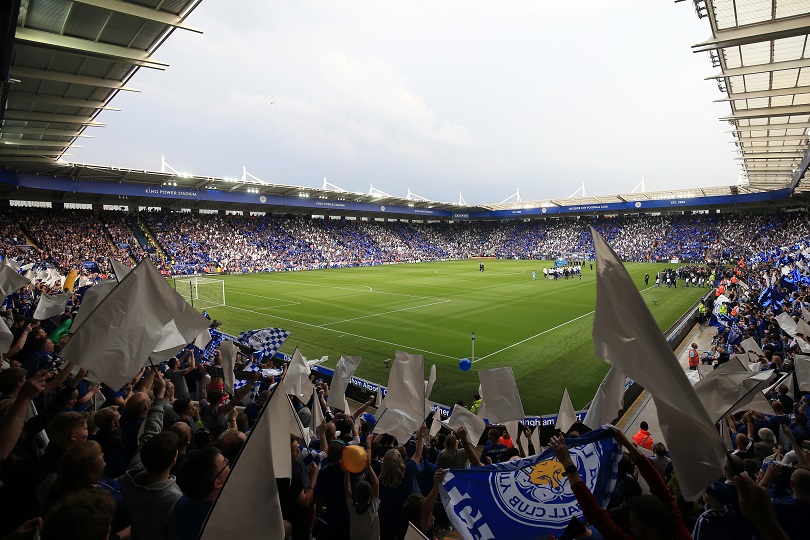
BV: Andrea Bocelli singing was a big moment for me, being on the pitch with him for the home game with Everton. I get to the ground about three hours before kick-off and it was already absolutely buzzing, even then. Obviously, introducing the new Premier League champions to the trophy and being on the pitch when the players lifted it was the best moment of my life.
CF: I think everybody deserves credit – especially those who were substitutes or who were sat in the stands, as they kept working hard, kept their morale up and kept supporting the team. They kept the competitive level very high. They don’t get all the credit, because they didn’t play as much, but they are the second row. They pushed us on and got behind us in every single game, which contributed to that great team spirit all season.
BV: The whole world knows us now. When you used to tell foreign people where you’re from, you would say, “Leicester – it’s near Birmingham.” Now, when you just say Leicester, they respond: “Oh! Champions!”
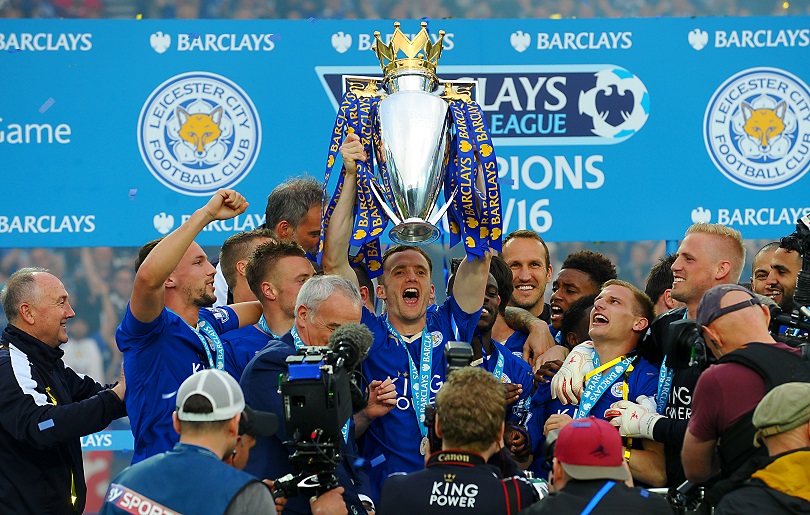
This feature originally appeared in the January 2017 issue of FourFourTwo. Subscribe! 5 issues for £5
Greg Lea is a freelance football journalist who's filled in wherever FourFourTwo needs him since 2014. He became a Crystal Palace fan after watching a 1-0 loss to Port Vale in 1998, and once got on the scoresheet in a primary school game against Wilfried Zaha's Whitehorse Manor (an own goal in an 8-0 defeat).

